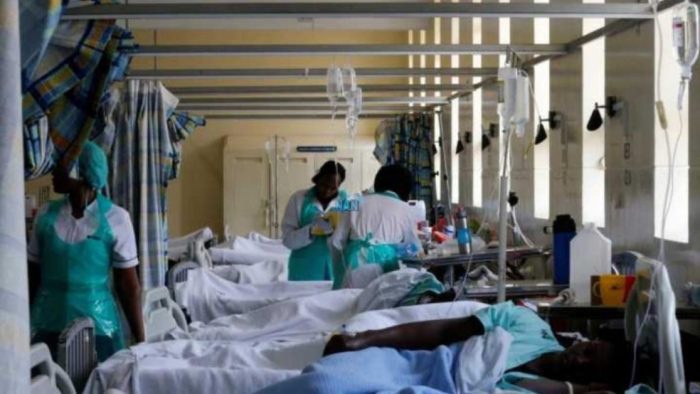Dr. Sylvester Ikhisemojie
In discussing matters of health concern, it is often the case that we focus a lot on things which contribute to good health practices and the outcome we all want. However, there are certain situations in life in which difficult choices have to be made to sacrifice one or more organs in order that life can continue with as little discomfort as possible. Sometimes, these problems are as a result of hideous injuries where there is no possibility of salvage and sometimes, they result from disasters like cancer. At any rate, it is important to appreciate here that the loss of such organs does not mean the end of life, but rather an opportunity to adjust to the new realities so that a second chance can be obtained. In the paragraphs below, we shall be looking at some of these organs and the conditions that might cause the radical decision to do away with them.
One common organ that many people have lost and have carried on living normally without is the appendix. It is usually surgically removed once it becomes inflamed and begins to cause a lot of abdominal pain, fever and vomiting. The functions of that appendage are not fully understood and there is no evidence to indicate that the people who no longer have it are missing something.
Another organ that can be done away with in similar circumstances of pain, infection and fever is the gall bladder. In addition, it may harbour stones which would add to the likelihood of pain and it can actually cause a lot of misery to those who have these features. As a result of that combination, the convenient thing offered most patients is the removal of the organ with little or no ill-effects.
The other organ that many people have lost and carried on living without is the spleen. This is called a lymphoid organ whose major role in the body is the filtration of particles from the blood. These particles may have to do with red blood cells that are deformed by disease or invaded by parasites like the malaria parasite, plasmodium. It is also a frontline organ of defence for the body and an important part of the immune system. However, in certain situations such as the tropical splenomegaly syndrome seen in people with frequent attacks of malaria or in people with the SS and SC genotypes, the organ may be removed to improve the quality of life. With adequate care using antibiotics judiciously and providing vaccination against some common forms of bacterial infections, people who have had their spleen removed live normally.
One surprising organ we can live without is the stomach. The operation to remove the stomach is known as gastrectomy and it may be partial or total. The total gastrectomy which is the removal of the entire stomach is the more profound one and it is the only choice when a person has got a particularly aggressive form of stomach cancer that is still limited to the walls of the organ. The survivor of such a terrible disease condition is then compelled to eat small meals at frequent intervals of two hours or four hours to avoid some of the more challenging side effects of having lost the stomach. That is known as the dumping syndrome when the alimentary canal is presented with a sudden influx of a large amount of food at once. Dizziness, sweating, abdominal pain, vomiting and diarrhea can occur as a result and this is all very distressing for the patient who would then also lose weight.
The same is true of the large intestine or colon where conditions like its total involvement by Hirschsprung’s disease seen in children or Crohn’s disease can pave the way for such radical treatment. In either case, the entire colon can be removed surgically and normal life can actually go on with profound changes in the frequency with which food is eaten. It is thus possible to live without the large intestine. That is not true for the small intestine where some of the most important things to do with digestion and absorption of nutrients take place.
The sex organs can also be lost with no significant changes in the pattern of life except for the psychological import of it. This is particularly true in situations where the choice to lose such organs was determined by a disease condition rather than a voluntary one. Accordingly, men who develop cancer of the penis will often have to have the entire penis removed. The necessary provision for them to be able to urinate normally will of course be ensured but sexual intercourse is a lost attribute. The same is not true for women who lose their womb either because they have endometrial cancer or they develop huge fibroids that necessitate the removal of the uterus. Since the vagina is spared, sex is still possible without any ill-effects.
When there is bladder cancer, the entire urinary bladder can be removed and an artificial pouch can then be created using small intestine as a holding bag for the urine. Usually, such people lose their ability to regulate their urine and often have to time it using some kind of warning device. With time, they are able to time it almost precisely with practice and maturity. In children, this is a challenge always.
The eyes are something we can also do without. As terrifying as it looks here, there are millions of people across the world who have lost their sight and live healthily with their adversity. When the loss involves one eye, it is almost like both eyes are present. When it is both eyes involved, certain challenges are inevitable but good health can be preserved. When people like Steve Wonder are considered, it can be appreciated that so much is possible even without the eyes being able to see normally.
Another such organ is the kidney whereby normal living is possible with one organ only. There are many situations which can make this particular situation happen. Cancer of the kidney is one such condition and so is multi-cystic kidney. In either condition, it is usually normal to excise the diseased kidney so as to protect the individual from further damage. The remaining healthy kidney can carry on the work of filtering the blood of its impurities in a normal way. There may be some increase in the individual size of its cells just as a form of adaptation. This enables the lone kidney to continue its work and to take up the extra workload being left behind by the removed kidney.
Finally, the lungs are another organ which the body can comfortably live without even when one is removed. Cancer in one lung, tuberculosis that has destroyed one lung or a lung crushed as a result of an accident are some of the common reasons why one lung might be removed. Normal breathing could be slightly more difficult at the beginning but over time, the remaining lung develops an increased ability to cope with the extra load that is required. At 82 years, the current Pope Francis has had one lung since his teenage years and that has not slowed him down in any way.










Comments